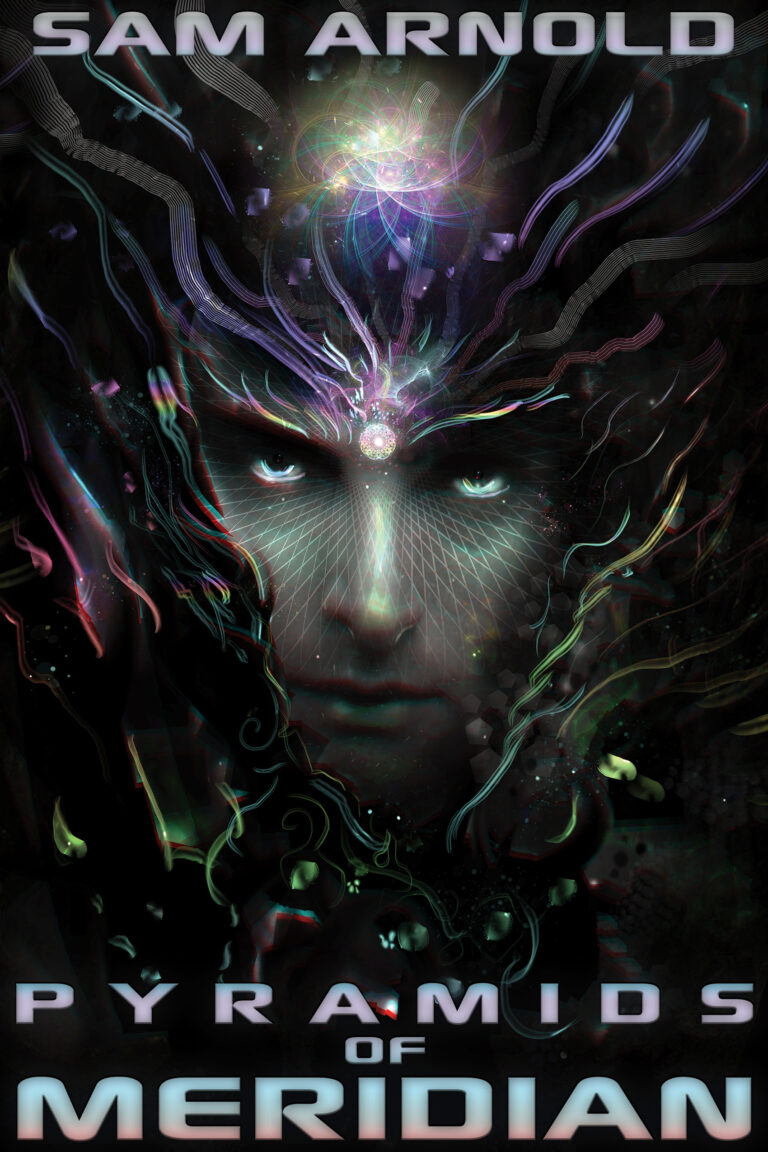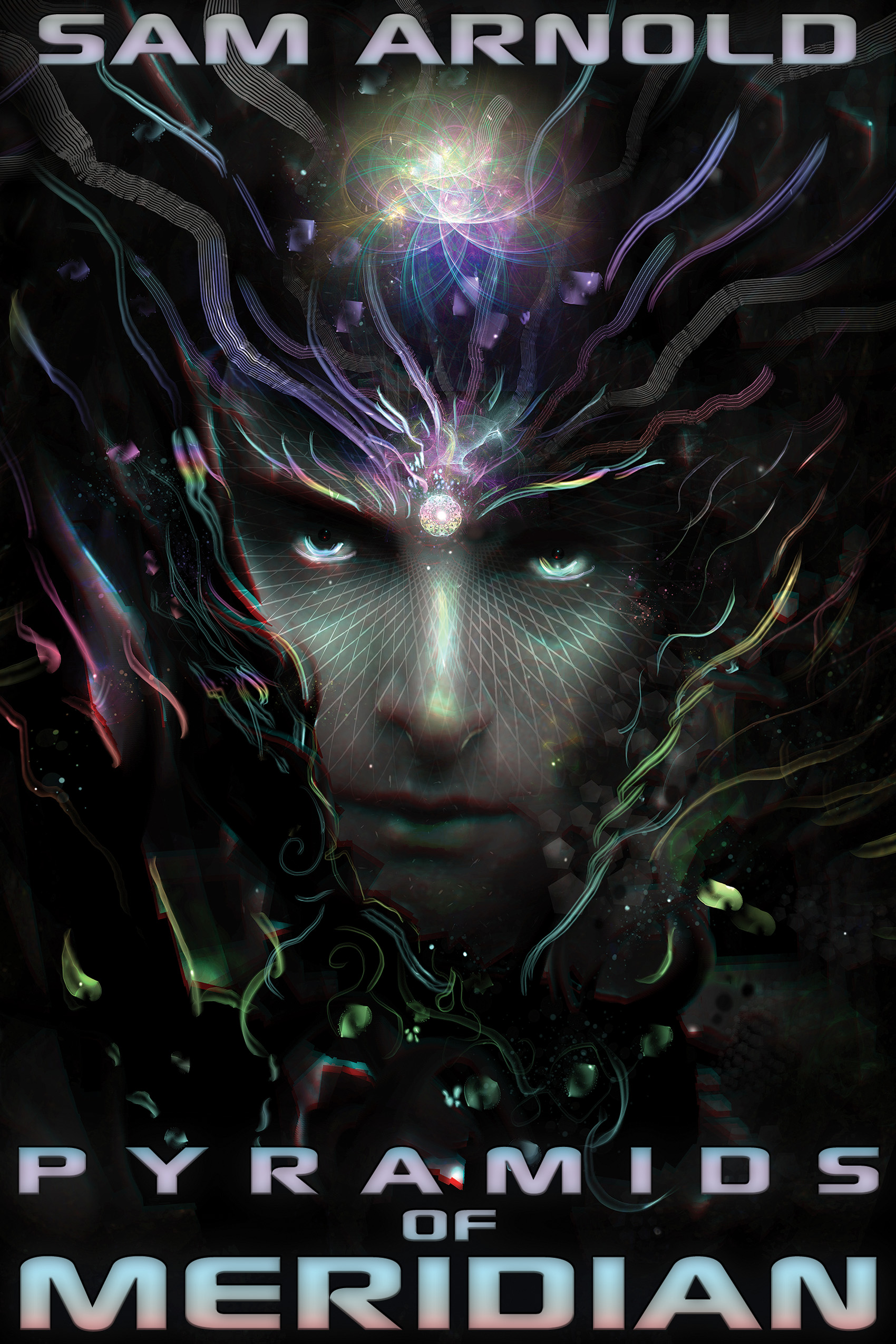Author Sam Arnold‘s greatest gift is his imagination. The futuristic worlds crafted in PYRAMIDS OF MERIDIAN are unique in the science-fiction literary landscape. They bear similarities to William Gibson’s neural networks, as well as the spiritual themes explored in Isaac Asimov’s The Gods Themselves and Octavia Butler’s Parable of the Sower. But Arnold’s world of psychedelic light shows, invisible matrices, and lost souls is all his own; and his starships, futuristic weapons, and interstellar travel avoid the usual sci-fi tropes, introducing refreshingly new concepts.
PYRAMIDS OF MERIDIAN is detailed and complex. The two heroes, Kelly and Nathan, are opposed; Kelly is a hard-knock realist, while Nathan is a holy roller. Both soldiers are pressed into a mission that transports them to an artificial “heaven“ ruled by an egomaniacal Vietnam veteran who died in 1968. Is this afterlife true, or is it some AI-generated simulation controlled by a higher being? Just when readers think they may have the answer, Arnold tosses a curveball, keeping the story a guessing game until the very end. The problem with this afterlife is that the stakes are unclear. Characters die only to be reborn a few chapters later, robbing this novel of true emotional weight. If reality can be reshaped on a whim, then what is the ultimate goal of life? PYRAMIDS OF MERIDIAN suggests the afterlife is a video game with endless restarts and limitless boundaries, and that the bonds of love can transcend both time and space.
Arnold’s writing style is almost as unique as his futuristic ideas, relying heavily on metaphors to extend his sentences. Sometimes this creates lush, descriptive writing. Other times it results in confusing purple prose. PYRAMIDS OF MERIDIAN has a mythic quality and its main characters wield god-like superpowers, thanks to a blend of tech and magic. Arnold tries to “keep it real” by imposing outlandish physical measurements on the action; spaceships are 75 miles long, and flying combat suits can accelerate soldiers from zero to 1,000 mph in the blink of an eye. But units and measurements don’t hold weight when the physics of space-time gets warped at will. Sprinkling numbers on a science-fantasy novel won’t turn it into hard SF.
Sam Arnold‘s rollicking PYRAMIDS OF MERIDIAN is a creative but uneven story that combines thoughtful theology and action-packed military science fiction to tackle death and the afterlife.
~Rob Errera for IndieReader


